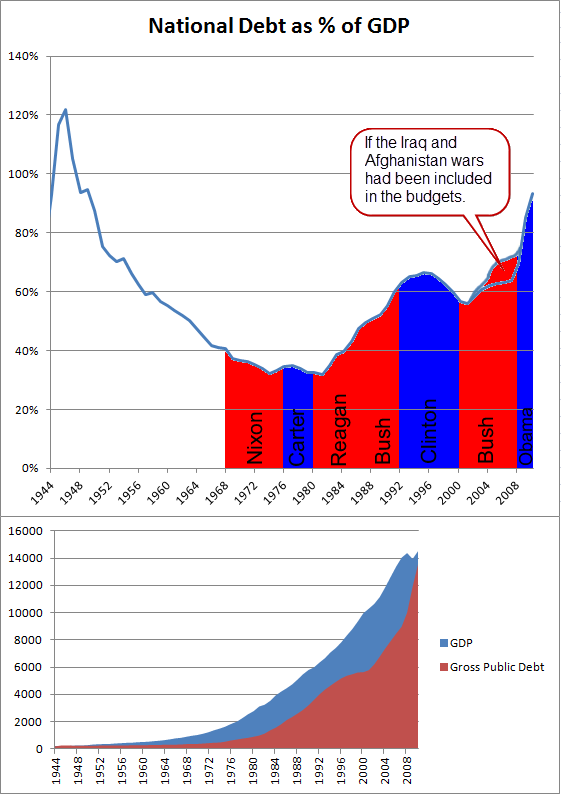As of 2012, the United States currently has ~16 trillion in debt.
The last five presidents have all added to the overall debt*.
Who is the last US president to decrease the total amount of debt owed by the Federal government?
*(Including Bill Clinton; it is a common misconception that he paid down debt. He paid down some of the public debt, but the amount of intra-governmental debt increased offsetting the gains he made in paying off the public debt)
